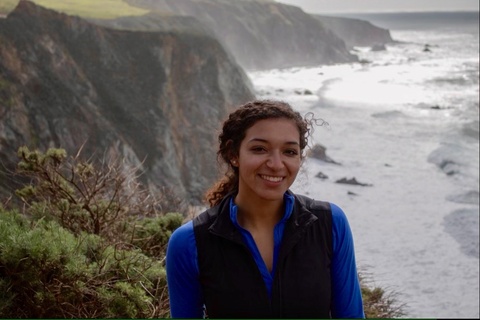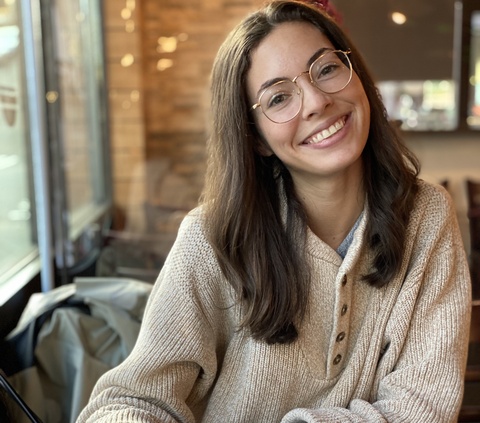
The police officer asked the driver to get out of the car. Peoples was next.
Peoples, who is half Black and half white, was months away from getting her college degree from Stanford and starting her medical education at the University of Iowa Carver College of Medicine.
“I don’t think I’ll ever know for sure if I was the person who was getting out of the car because I was sitting behind the driver, or if it was the color of my skin,” she says. “I was the one person of the four of us who ended up in handcuffs.”
It turned out the car they were in resembled the vehicle of a person wanted for weapons possession. Although the group was eventually released, the experience had chilling implications.
“I think it was the first time I really understood the weight of my skin and the burden Black people have to carry every day,” Peoples says. “The majority of people are good and are going to treat you with respect, but some people are capable of reducing your life and experiences to a color—something less than human and treating you as such.”
Throughout college Peoples spent a lot of time reflecting on her personal identity and what it means to be half Black and half white. And when George Floyd was killed by a white Minneapolis police officer in May, she saw the same racial tensions she felt play out across the country.
George Floyd’s death also prompted the national White Coats for Black Lives organization to call on medical students across the country to take action. Peoples soon connected with other UI Carver College of Medicine students to start their own chapter.
“I realized just how much privilege I have, to spend the majority of my life not really feeling any consequences of my race,” she says. “I’m in a position now to gain some power back and hopefully do something good with it.”
 Increase minority representation, focus on racial justice education
Increase minority representation, focus on racial justice education

The chapter began meeting this fall with 20 members. The group hopes to grow and foster more dialogue on racism within the college by addressing three different spheres:
Medical care: Address racial disparities; work with UI Hospitals & Clinics to evaluate health treatment and outcomes for patients of different races and backgrounds
Medical education: Prepare future physicians to be advocates for racial justice; elevate Black voices
Racial justice in the community: Partner with organizations that are committed to racial justice in Iowa City and Johnson County
The group’s work has already begun. This summer, Black students came together to discuss areas of improvement with the Carver College of Medicine administration. These conversations resulted in a plan to increase the number of minority standardized patients and add more lectures focused on health disparities among racial groups. Increasing the number of Black students in the medical school is another major goal for the organization.
The group is also working on a racial justice report card for the college. Using national standards, a committee will review the medical school curriculum—from didactics to clinical rotations—for its focus on racial justice education.
“This issue is so big, we have to figure out something we can do that’s actually going to make a difference, something measurable,” says Bryn Myers, co-founder of the Carver College of Medicine chapter of White Coats for Black Lives.
Myers, who is white, says students do not have to be Black to join the organization.
“We want representation because the point is that everyone should be supporting this cause. It’s about human rights,” Myers says. “It’s intimidating not having a full perspective on this issue, and I don’t want to misspeak or speak on behalf of a community. You might mess up, but what’s the alternative? This is a very open and understanding community, and we want everyone on our side.”
In January, Peoples and Myers, both second-year medical students, start their clinical rotations, becoming new representatives of the health care system.
“There’s so much history of poor treatment of entire populations by the health care system, and people don’t know who we are when we’re interacting with them. We’re just these people in white coats,” Peoples says. “But the more we can all learn how to interact with people who have different skin colors and backgrounds, the better we can communicate as individuals and get to know the struggles of others.”
Carver College of Medicine students interested in joining White Coats for Black Lives should contact Becky Peoples rebecca-peoples@uiowa.edu for more information.